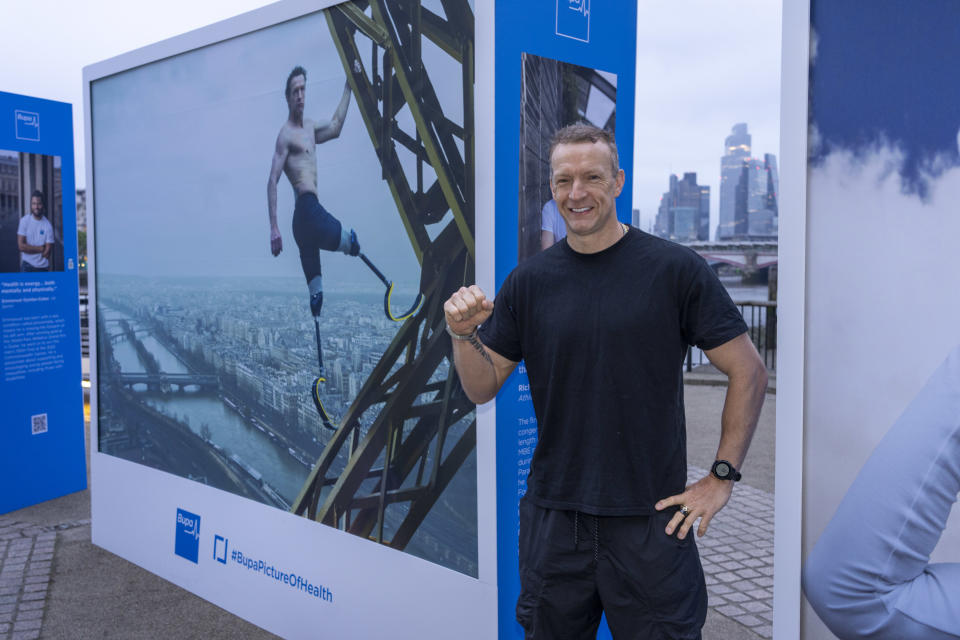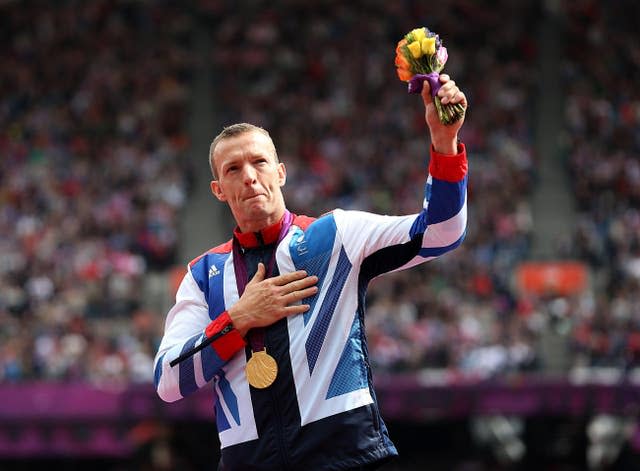Richard Whitehead says Paralympians should be in the spotlight for longer
Two-time Paralympic champion Richard Whitehead believes disability is “lagging behind” other minority groups and needs more than just fleeting moments in the spotlight.
With 99 days until the start of the 2024 Paralympic Games in Paris, the British runner called for greater disabled representation within the boardrooms of national governing bodies and the media.
Whitehead would also like Para athletes to receive more support with mental health and for there to be increased appreciation of the day-to-day challenges of living with a disability.

The 47-year-old, who will work as a BBC pundit in the French capital between August 28 and September 8, has been captured in an eye-catching image on the Eiffel Tower by world-renowned photographer Annie Leibovitz as part of a Bupa campaign to celebrate diverse health stories.
“Within sport, we have these real spotlight moments and the Paralympics has that spotlight moment for two weeks out of four years,” he told the PA news agency.
“I still feel that when the athletes get these accolades, whether it’s from the Queen or King, or whether it’s for the sport themselves, they need to be part of that messaging; going out and talking about the importance of diversity because the representation of people with disabilities is still really lacking within national governing bodies and even within some of the team frameworks.
“We need to have more people with disabilities in management roles within organisations.
“It’s great having disabled people on the start line but also they need to be behind the microphone, they need to be in the boardroom supporting the progress of disability sport in the future.
Had a great few days in Paris working on an exciting campaign with international company @Bupa – watch this space for more details in the coming months!!!
Rich 👍🫶🏻🏃🏾🏃🏻♀️🏃🏻♂️💪🏼💋x pic.twitter.com/2n0K3SLEUL
— Richard Whitehead MBE Founder of TRWF (@Marathonchamp) February 23, 2024
“Yes, it’s changed. But I feel disability is lagging behind other minority groups like LGBTQ+ (lesbian, gay, bisexual, transgender, queer/questioning) and BME (black and minority ethnic).
“I think disability has still got a long way to go.”
Whitehead, who was born with a double through-knee congenital amputation and runs with prosthetic legs, won 200m gold at London 2012 before retaining his title four years later in Rio.
Having competed at the last three summer Paralympics, he wants to move away from what he views as a “tokenistic approach” in some aspects of how disabled people are represented.
“The Paralympics is every four years – I think it’s more important what happens in between those Paralympics,” Whitehead continued.

“We don’t get the same kind of recognition as our Olympic counterparts and because of that there seems to be a tokenistic approach with certain aspects of how we are represented.
“There needs to be more visibility around disability sport over that four-year period: building those relationships with the athletes, giving the athletes more confidence about the authentic approach the media and national governing bodies and organisations like ParalympicsGB have around the athletes.
“I’ve seen the success it gives you but I’ve also seen that athletes aren’t supported post-Games.
“The mental health and physical health aspects of sport really need to be looked at because what happens after the athletes are successful, are they supported after the success?
“Unfortunately not and we all need to do more to support athletes in journeys post-success.”

 Yahoo Sport
Yahoo Sport 




































































